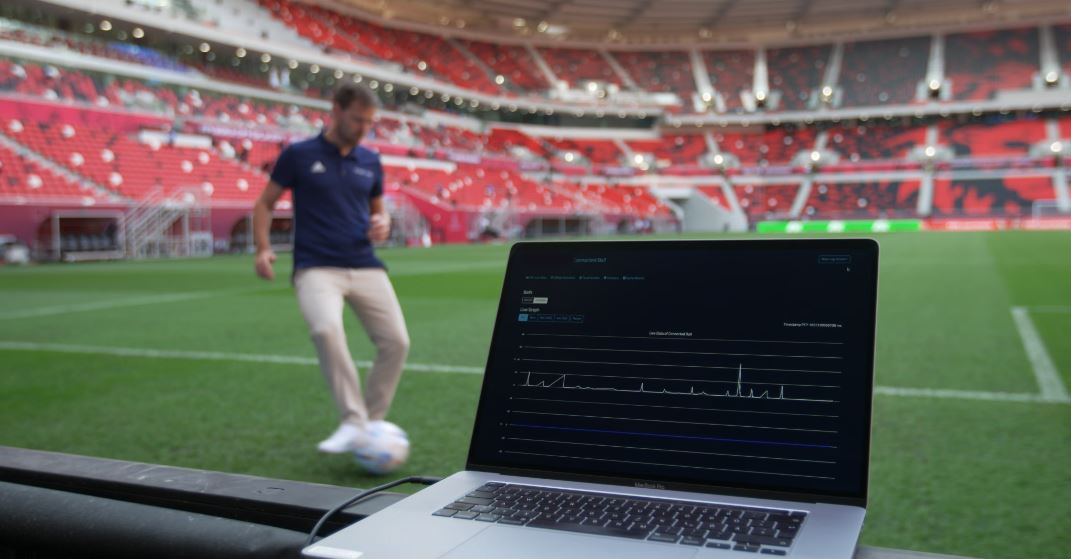
Fifa has confirmed that semi-automated, state-of-the-art technology will be used at the World Cup in Qatar to speed up the time taken to reach offside decisions.
In addition to a sensor in the middle of the ball, which sends data 500 times a second to determine the exact kick-point, 12 dedicated multi-tracking cameras that are “100% synchronised” will be mounted on the roof of each stadium to track the ball and 29 points on each player, sending data 50 times per second to calculate their exact position on the pitch.
Any player in an offside position will trigger an alert in the video assistant referee booth that can be relayed to the on-pitch referee.
The system was trialled at last year’s Arab Cup and Club World Cup, where it was estimated to have reduced the time taken to make offside VAR decisions from 70 to 25 seconds.
“We are very positive. It is ready,” said Fifa’s head of refereeing Pierluigi Collina.

No robot referees
It has been claimed the increased use of technology is rendering referees virtually impotent in terms of decision-making.
Collina, who was voted the world’s best referee for six consecutive seasons from 1998 to 2003 and took charge of the 2002 World Cup final between Brazil and Germany, denies this is the case and says there will still be room for debate around decisions.
“I read about robot referees,” he said. “I understand this is very good for headlines but it is not the case.
“The match officials are still involved in the decision-making process. The semi-automated technology only gives an answer when a player is in an offside position when they play the ball. The assessment of interfering with an opponent and seeing if a handball or foul was committed remains at the discretion of the referee.
“Our goal is to get referees taking decisions correctly on the field. If something wrong should happen, the referee may take advantage of the technology to get a better vision of what happened – but there will still be room for discussion.”

You are either offside, or you’re not
Premier League pair Anthony Taylor and Michael Oliver have been selected among the elite panel of referees who will gather in Qatar two weeks before the World Cup for final instructions.
While there has been debate about the time taken to determine offsides – especially what have been dubbed ‘toenail decisions’ – Collina does not view the new offside technology any differently to the systems used to determine whether a ball has crossed the line or not.
Famously, that did not work in the first game of the Premier League’s Project Restart, when Hawk-Eye did not spot Aston Villa keeper Orjan Nyland had carried the ball into his own goal. Collina does not feel that is an issue.
“Technology works most of the time,” he said. “That is one wrong decision I remember in thousands of correct ones.
“Goalline technology offers very high accuracy. If the ball crosses or doesn’t cross the line by a few millimetres everyone is happy. It is the same with semi-automated technology. If the player is on or offside, the technology should be praised then as well.
“We cannot get it down to four or five seconds for a decision. That would be the wrong expectation. But we have come down from 70 seconds to 20 or 25. That is important. This system will be faster and more accurate.” (BBC Sport)












nice info bro thanks